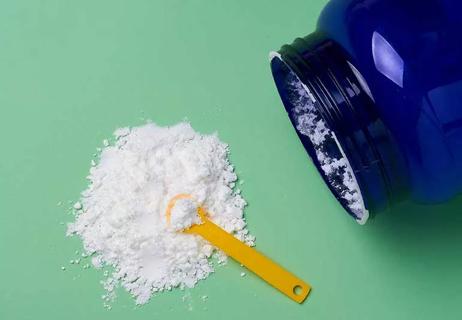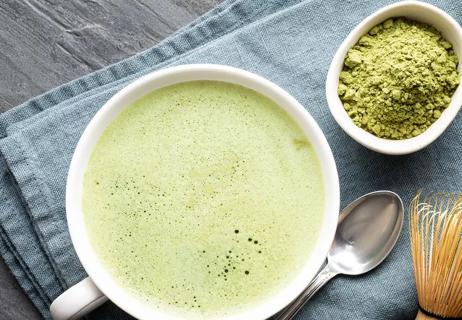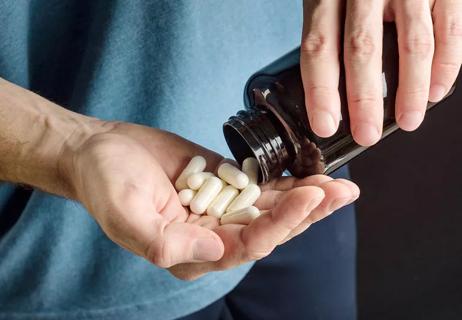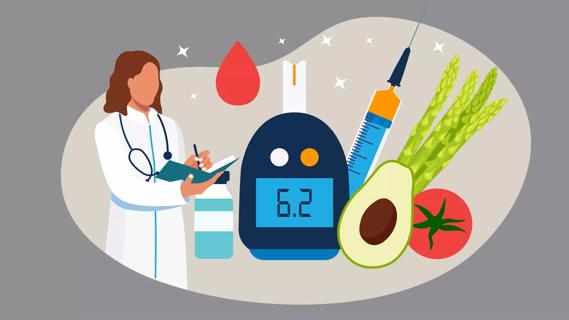The nonessential amino acid may help with stress and depression

With so many different supplements out there with claims to improve sleep, strengthen your immune system and improve your heart health (just to name a few), it can be difficult to know what may or may not work.
Advertisement
Cleveland Clinic is a non-profit academic medical center. Advertising on our site helps support our mission. We do not endorse non-Cleveland Clinic products or services. Policy
For example, L-tyrosine has been getting a lot of buzz for claims it can help with stress and memory. But does this nonessential amino acid, also known as tyrosine, really stand up to the hype?
“As a nonessential amino acid, your body naturally produces L-tyrosine on its own. And it’s used as a building block for protein,” explains registered dietitian Courtney Barth, RD, LD. “It’s made from an essential amino acid called phenylalanine.”
So, what does L-tyrosine do?
In addition to building proteins, L-tyrosine helps your body produce enzymes, thyroid hormones and melanin, as well as helps with communication between nerve cells.
And while it’s produced naturally in your body, you can also get L-tyrosine from eating certain foods like cheeses, cured or smoked meats, soy products, avocados and nuts.
So, do we even need to take it as a supplement?
Barth explains the potential health benefits of taking the supplement and what side effects you may encounter.
What is L-tyrosine used for? While L-tyrosine benefits may help with stress and depression, Barth says that more research is needed to fully understand the role the amino acid plays in our bodies.
Who hasn’t been stressed out? And when we’re stressed out, we may have trouble thinking clearly, remembering information and paying attention.
Advertisement
Research is looking at whether L-tyrosine can help improve one’s mental performance when in a stressful situation.
In one example, participants who performed a test that measured their cognitive flexibility did better when taking an L-tyrosine supplement versus a placebo. Another study shows that people who worked on a mentally demanding task saw their working memory improve while taking L-tyrosine.
“L-tyrosine hasn’t been shown to improve memory under resting conditions,” explains Barth. “It has been shown to alleviate reduced memory under stressful conditions. It’s that stress component that’s key. If you’re stressed then you’re going to have depleted neurotransmitters and therefore, you probably have low L-tyrosine.”
Depression will affect 1 in 6 people during their lifetime. And while we don’t know the exact reasons someone experiences depression, one belief is that it has to do with your brain’s chemistry and its imbalance of neurotransmitters like serotonin and dopamine.
L-tyrosine can increase neurotransmitters in your brain, making it a likely candidate as a remedy for depression.
But Barth says it’s important to know that early studies are mixed. One study shows that L-tyrosine didn’t have any antidepressant effects, while another shows that individuals with low levels of dopamine saw significant benefits when supplementing with L-tyrosine.
“Until there is more conclusive research, using an L-tyrosine supplement to treat depression isn’t recommended,” she adds.
A rare genetic disorder, phenylketonuria (PKU), is caused when genes that play a role in creating phenylalanine hydroxylase, an enzyme, are defective. This particular enzyme is used to make L-tyrosine.
Being low in L-tyrosine can lead to mental health disorders. Whether supplementing L-tyrosine can help with PKU symptoms is yet to be determined, as studies show no improvement when L-tyrosine supplements were taken.
L-tyrosine supplements are recognized as generally safe by the U.S. Food and Drug Administration (FDA), but they may cause interactions with certain medications like:
“It’s important to remember that supplements aren’t regulated by the FDA,” Barth cautions. “So, you want to make sure you do your homework on brands to see if other additives have been added.”
Most people won’t benefit from taking an L-tyrosine supplement. But Barth says it’s best to talk to your healthcare provider about whether taking an L-tyrosine supplement is right for you.
You can find L-tyrosine supplements on their own as part of a workout supplement. And when it comes to how much to take, Barth says she’s seen recommendations for taking 45 to 68 milligrams per pound of your body weight, but that the guidelines aren’t clear.
Advertisement
“It’s definitely something you would want to work with a healthcare provider to determine what’s best for you,” she says.
Another move she recommends? Getting some lab work done before starting any supplement.
“It can help you see if you’re deficient in anything,” she explains. “Then, talk to your healthcare provider about your symptoms and medications so we can make sure you’re not taking anything that can harm or hurt you.”
And when it comes down to it, the best way to get what your body needs?
“We can also recommend foods that are high in the certain vitamins and minerals you need,” Barth says.
Advertisement

Delivered every Tuesday!
Sign up for our Health Essentials emails for expert guidance on nutrition, fitness, sleep, skin care and more.
Learn more about our editorial process.
Advertisement

This amino acid is in lots of energy drinks, but our bodies already make all we need

Timing and pairing are important to reap the possible benefits of this amino acid

Potential benefits include improved blood flow, which may help with athletic performance

Health benefits + a simple recipe

Identify your triggers, set ground rules for your break and start practicing mindfulness

A diabetes diagnosis, new or long-standing, can trigger reactions like grief, stress, depression and frustration, but symptom relief and help are available

Reaching menopause very early raises your risk of certain health conditions

Too much screen time and unrealistic expectations and perceptions and can lead to an increased risk of anxiety and depression

Type 2 diabetes isn’t inevitable with these dietary changes

Applying a hot or cold compress can help with pain